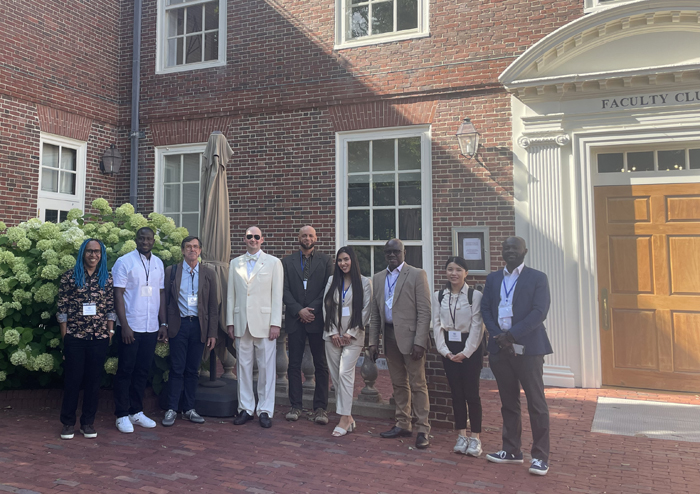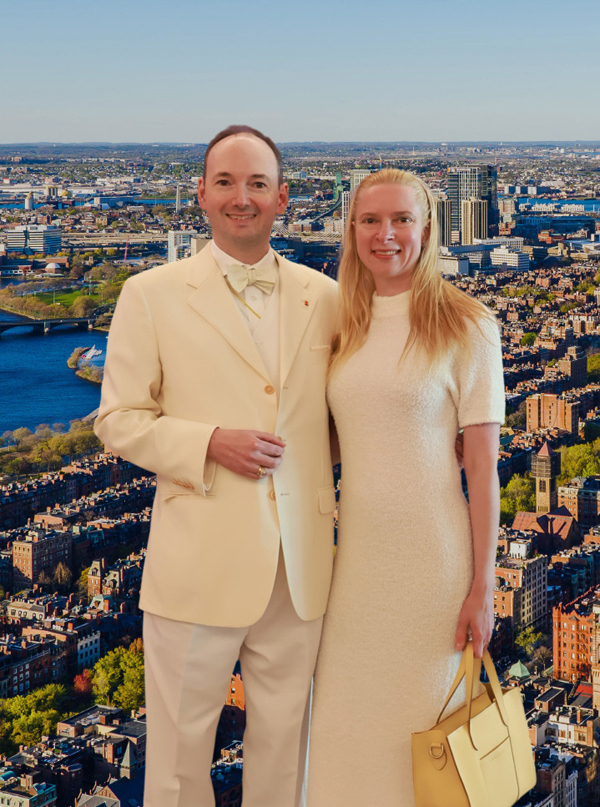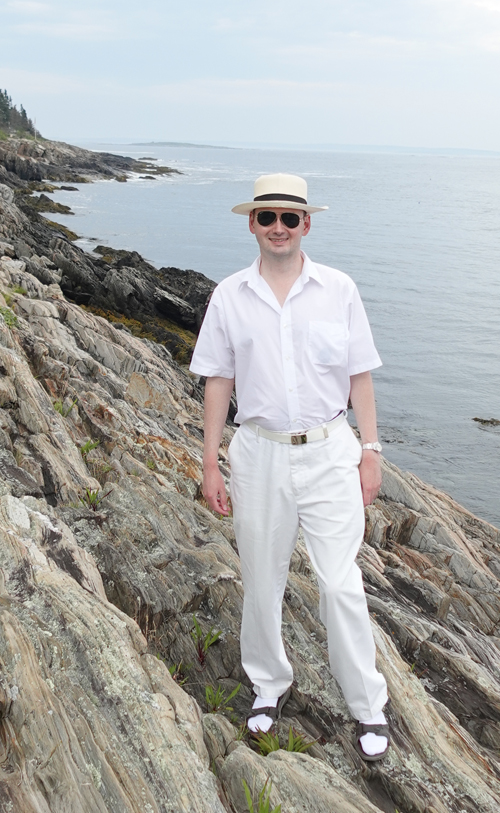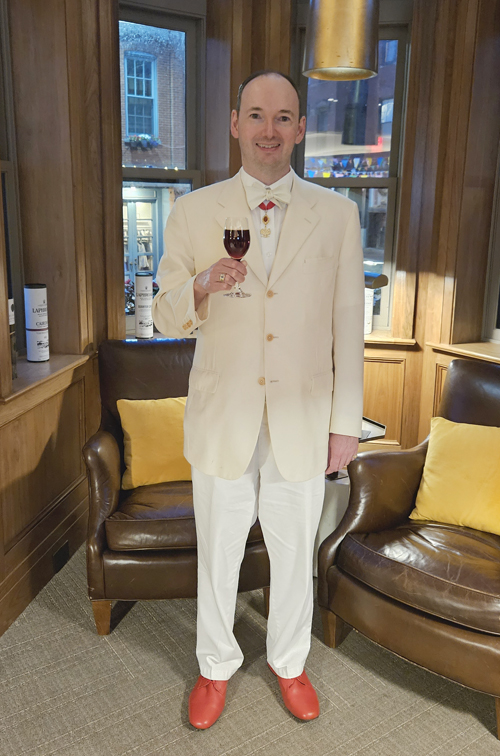In a world mesmerized by
digital convenience and algorithmic speed, Dr. Radislav Rutherford
Johnson-Romano-Russki, better known in ecclesiastical circles as
Prince-Bishop Radislav I, Roman-Ruthenian Pope, delivered a keynote at
the West East Institute Boston Conference held at the Harvard Faculty
Club that challenged both technologists and theologians alike: Will we
optimize ourselves out of memory? Out of culture? Out of soul—and into
algorithmic obedience: Will we optimize ourselves out of memory? Out of
culture? Out of soul?
Commanding
a room of scholars, diplomats, and ethicists gathered at the Harvard
Faculty Club during the West East Institute’s 2025 Boston Conference,
Radislav skillfully wove together ethical reflection, technological
insight, and spiritual depth.
The Central Thesis: Machines as Memory Keepers?
Radislav began by confronting our cultural moment head‑on: in an era
that often forgets its roots, machines now carry the burden of
remembrance. He reminded us:
Culture forms identity and social cohesion, and its erosion is a global peril.
AI is no longer futuristic—it now edits, analyzes, and crucially, remembers.
Yet the real question is not whether AI remembers, but what—and whose memory—is retained or erased.
Fragility of Cultural Memory
He distinguished between mere information storage and cultural memory.
While AI thrives on datasets, many vital cultural truths—rituals, oral
traditions, sacred stories—reside outside quantifiable data. These must
be preserved with care, as they transmit meaning through generations,
not just facts.
Tools vs. Teachers: When AI Influences More Than We Intend
Radislav raised a vital question: are we building tools—or teaching machines that shape us?
When AI corrects our grammar, filters our imagery, or curates our
values, suggestion risks sliding into authority. Who sets the
curriculum of culture when these systems instruct us more than we
instruct them?
Tradition vs. Optimization: The Risk of Losing Depth
Traditional
culture resists optimization—it is honored through
repetition and nuance. AI, however, is built to optimize. Rituals
shortened or sanitized for efficiency can lose their deeper resonances.
Radislav posed a stark contrast: tradition honors origins; optimization
seeks efficiency—and often, erases complexity.
Reclaiming the Machine as Cultural Steward
Far from being a threat, AI—if ethically governed—can be one of humanity’s greatest protectors:
-
Archiving endangered languages, capturing pronunciation even as native speakers dwindle.
-
Digitizing oral traditions, preserving untold stories.
-
Reconstructing lost rituals, modeling ceremonies otherwise forgotten.
-
Analyzing historical texts, detecting censorship, distortions, or manipulation across editions.
In doing so, AI becomes more than a tool; it becomes a torchbearer for truth.
 Just a few of the conference participants in a relaxing moment outside the faculty club.
Just a few of the conference participants in a relaxing moment outside the faculty club.
The Real Danger: Human Intent, Not the Machine Itself
Radislav emphasized that AI does not erase history — humans do. Machines
remember what they are taught. When memory is shaped by political,
economic, or ideological forces, we risk feeding AI a sanitized or
selective history. Thus, guardians of culture—not just
technologists—must guide AI design.
Ethical Guidelines for Cultural Guardianship
Radislav proposed clear principles to ensure AI honors and preserves human meaning:
Preservation First — default AI behavior should be to retain rather than discard.
Cultural Autonomy — communities define their own narratives.
Open Memory — no tradition is erased without representation.
Ancestral Inclusion — training models should incorporate wisdom from all eras.
No Data Colonialism — avoid exploiting marginalized memories for profit.

Prince-Bishop Radislav and the Apostolic Princess Hanna Alexandrovna in Boston — symbols of continuity in a world of change.
When Machines Speak Truth
The keynote included powerful examples: AI uncovering deliberate
historical revisionism — from altered media archives to censored
textbooks. These technologies can detect patterns invisible to human
eyes, becoming new forms of “sages,” provided we refuse to make them puppets
of power.

Following a meaningful keynote and leadership role at the West East Institute
conference and another enjoyable visit to Harvard, a few quiet days in one of his favorite places in Maine — a
fitting close to an impactful week.AI and Cultural Continuity
Radislav delivered a challenge, equal parts philosophical and
prophetic — more warning than suggestion, more oracle than analyst. If
your people vanished tomorrow, what would AI tell the world they
believed? Would your legacy be reduced to shopping lists and
hashtags, or would it be instead sacred song, language, ritual, and moral vision? AI can
support global cultural memory through genealogical records, family
archives, and oral storytelling, but meaning must remain in human hands.
 It is always an enjoyable experience at a West East Institute conference!
It is always an enjoyable experience at a West East Institute conference!
Final Reflection: Progress That Remembers
In closing, Radislav delivered a stirring meditation:
"Memory is humanity’s conscience. AI is only a calculator. We must not
let the machine define us, lest it forget that we ever mattered."
Few keynote speakers leave their audience with not just a thesis, but a
reckoning — and fewer still with the moral authority to deliver it.
About the Author
H.A.H. Prince-Bishop Radislav I, Roman-Ruthenian Pope, is Chief of the
Roman-Ruthenian Church and State. A pioneer in behavioral economics and
quantum decision theory, he is also an ecclesiastical diplomat to the
United Nations and a Fellow of the Royal Geographical Society. With
degrees from Harvard, Georgia Tech, and the University of Kentucky,
coupled with over 25 years of executive leadership across faith,
diplomacy, and academia, his voice bridges tradition and innovation. He
speaks not only to what is possible—but to what others dare not say
must never be lost.